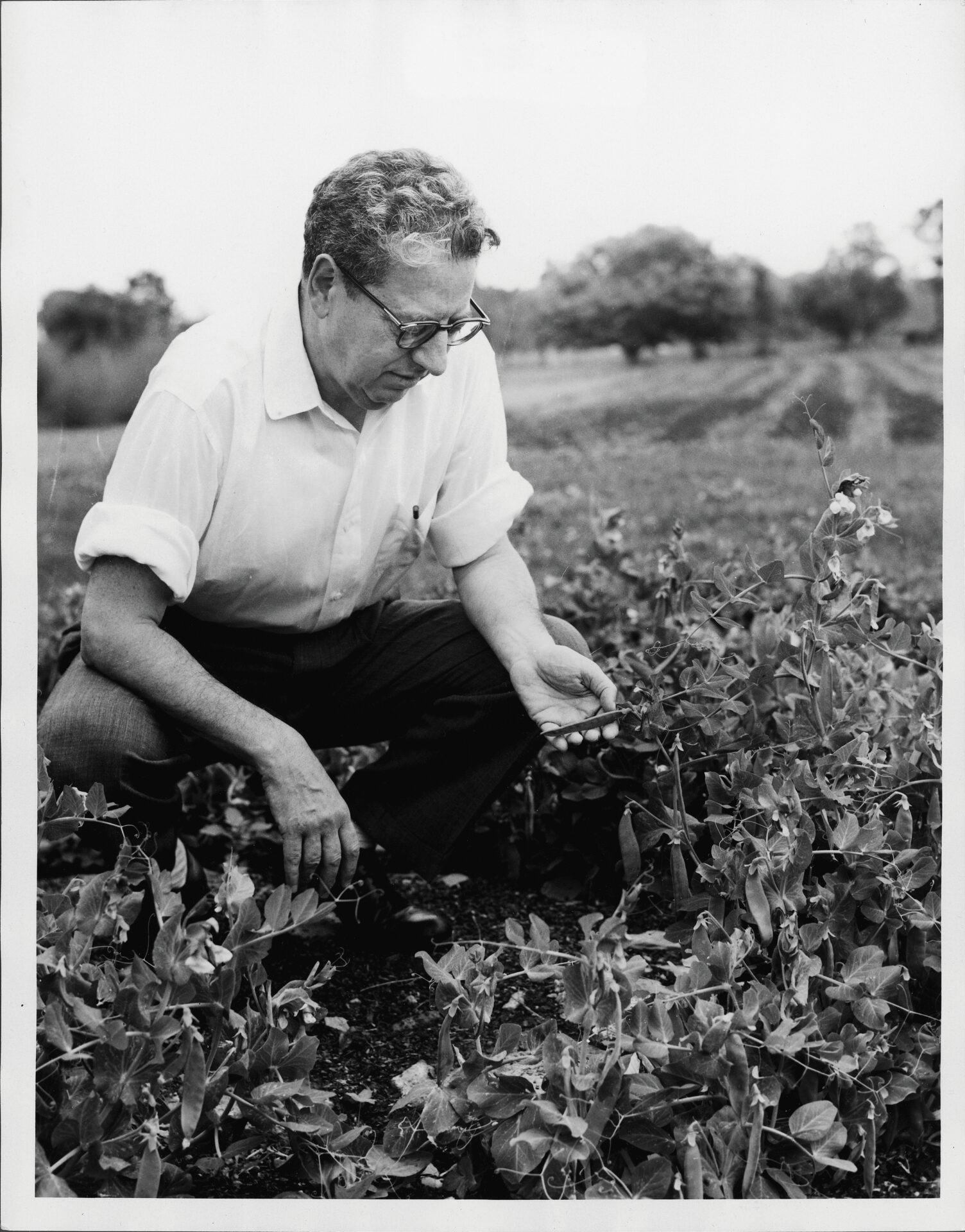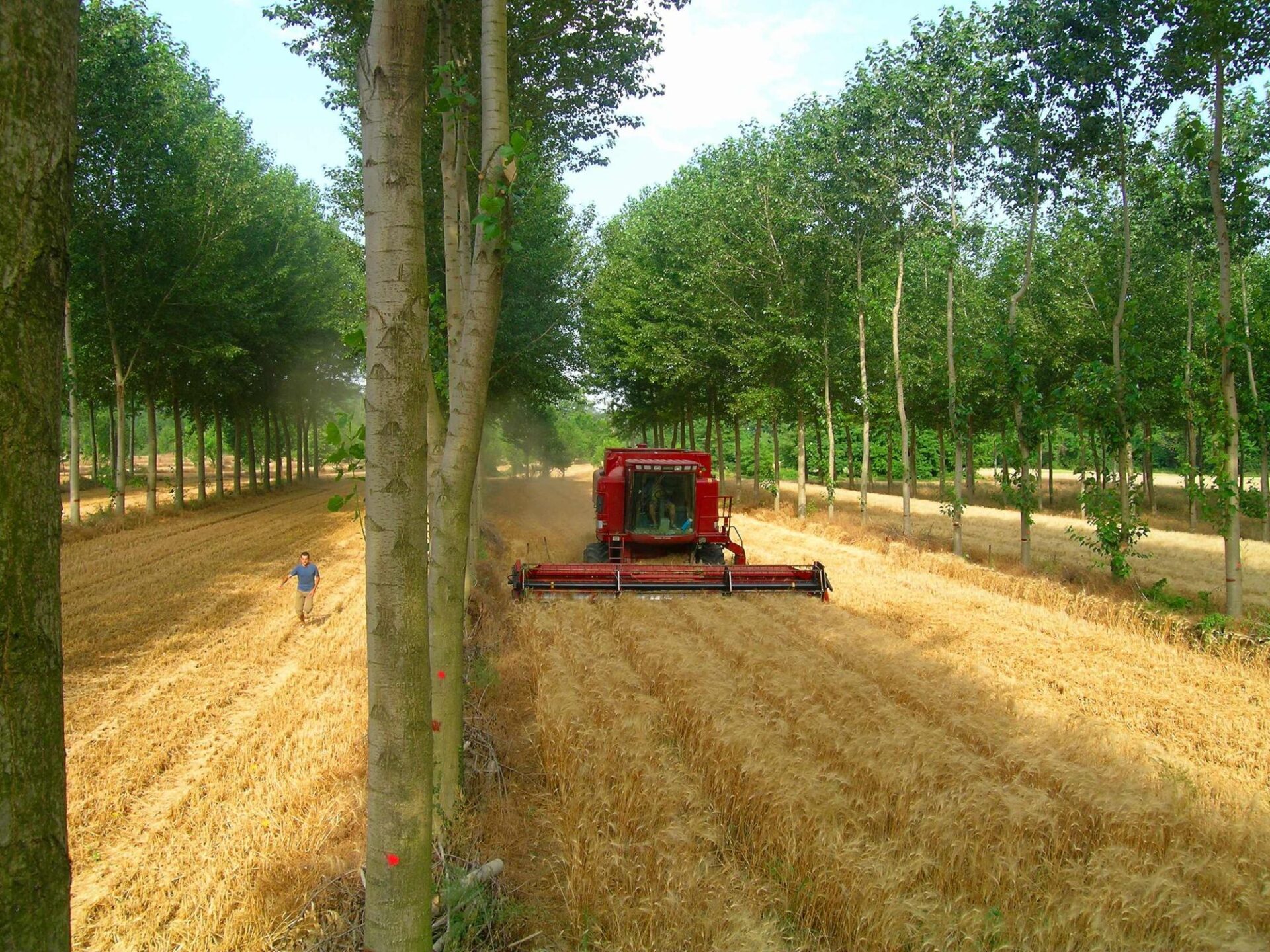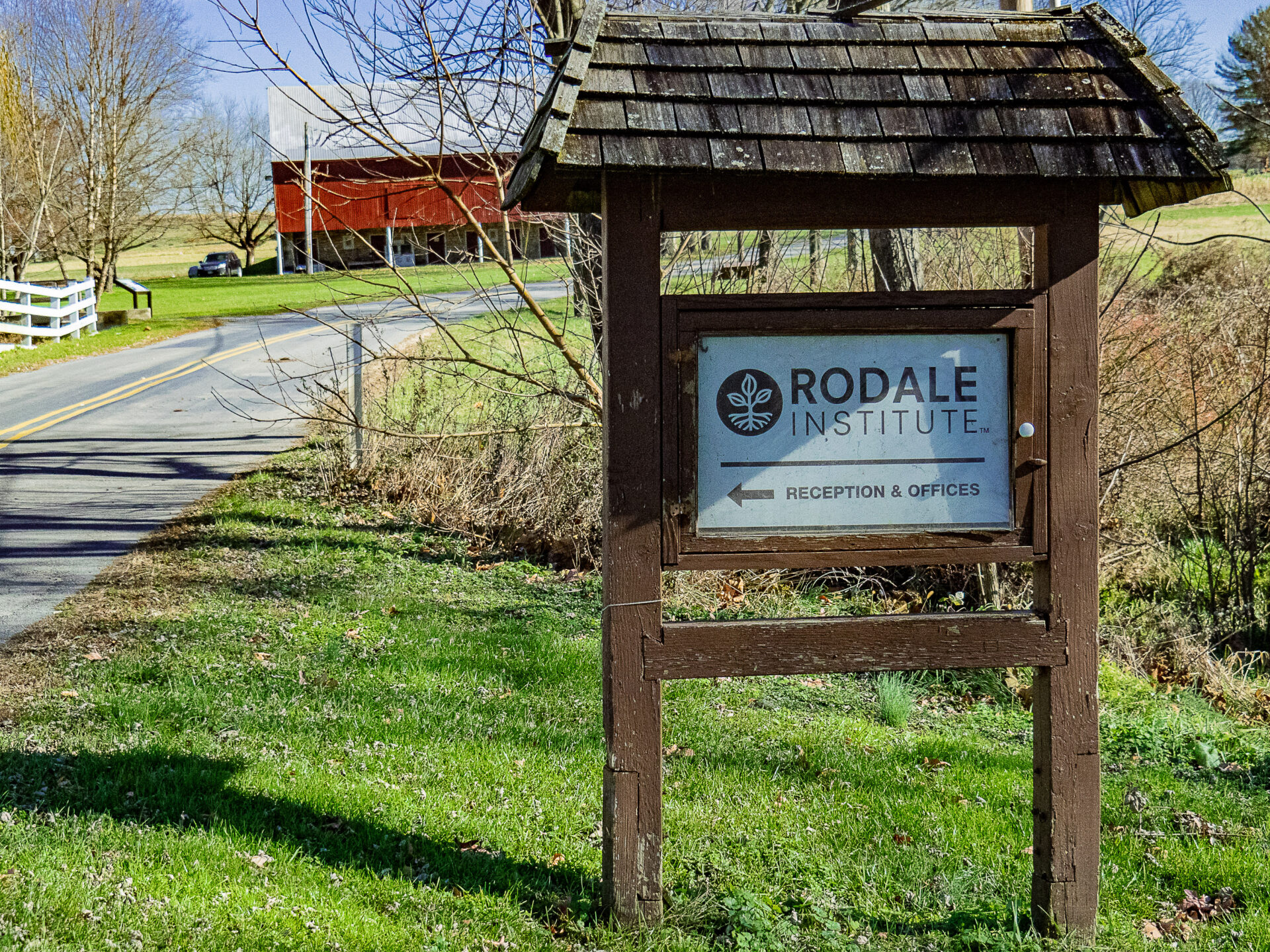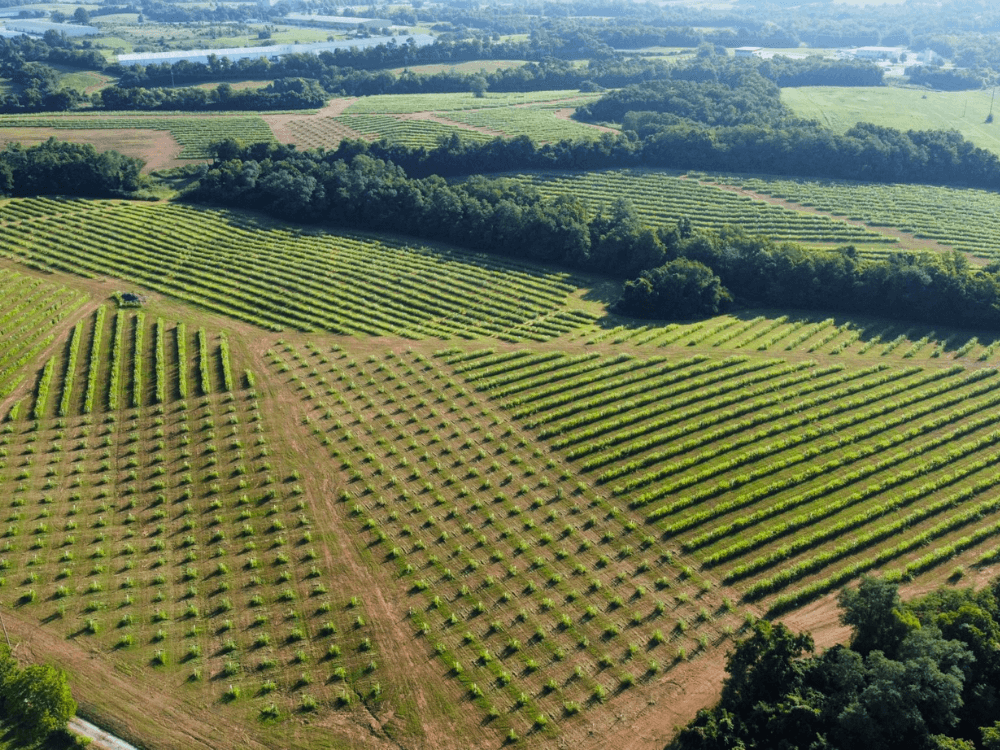[Disclosure: AgFunderNews’ parent company AgFunder is an investor in Propagate.]
Agroforestry accounts for just 1% of all agricultural land in the United States. While low, the figure isn’t surprising, given the high costs and long timeframes required for it as well as a general lack of education around agroforestry practices and benefits.
As defined by the USDA, agroforestry is “the intentional integration of trees and shrubs into crop and animal farming systems to create environmental, economic, and social benefits.”
“Information on how to transition to a successful agroforestry system is still limited across the country,” Leigh Archer, a perennial systems scientist at the Rodale Institute, tells AgFunderNews. “Farmers want to do what is best for their soil and their land. However, without sufficient research and education, it’s a huge risk for farmers to adopt a new production system.”
Rodale, of course, is a household name in organic and regenerative agriculture circles thanks to its extensive research and education programs. The nonprofit is now set to advance its work in agroforestry via a new partnership with Propagate, a startup that brings design software and financial assistance to the agroforestry sector.
Announced last month, the goal of the partnership is to increase agroforestry and tree cropping systems in North America. Working from Rodale’s farm in Pennsylvania, the two groups aim to acquaint more growers with the benefits — environmental and financial — agroforestry can bring.

‘We are stepping back into agroforestry research’
Cultivating conservation outcomes and revenue generation
Both Rodale and Propagate have much to gain by working together, suggests Propagate enterprise account exec Mark Phillips.
“Rodale brings this organic transition with their engagements with farmers, and we’re contributing opportunities to not only increase conservation outcomes through agroforestry adoption but also opportunities for revenue generation,” he tells AgFunderNews. “And in the case of livestock farms, improved farm resilience from the the shade and the fodder benefits of silvopasture.”
He notes that Rodale already has consulting relationships directly with farmers across North America that Propagate can leverage. In turn, Propagate gives Rodale access to its resources, such as its Overyield software that offers design, planning and other functions for agroforestry. As Propagate CEO and cofounder Ethan Steinberg noted in a recent AgFunderNews interview, the company aims to educate more farmers on the benefits of agroforestry and how it can drive on-farm profitability.
This fits neatly into Rodale’s core mission, which is to conduct research that supports farmers as they transition to organic production practices — normally a costly endeavor with long return times.
Why isn’t there more agroforestry?
As noted above, agroforestry only accounts for about 1% of agricultural land in North America.
There are a couple major reasons for this, says Phillips. “Agroforestry is expensive, and farming is marginal in nature. It’s hard for farmers to make the case for an immediate short-term value proposition.
“Farmers have to put agroforestry against a long list of other farm expenses in a given year,” he notes. “Tree crops might take five to 10 years to start producing income, and maybe even longer to break even. You need to have a farmer with a long term and often intergenerational mindset around farm development, who also has access to their land or that timeline.”
“Agroforestry still requires a fair amount of getting the word out,” adds Propagate senior marketing manager Kyle DeWeerdt. “If you look outside of the US, agroforestry has been widely used as a technique that’s been handed down generationally. We just don’t have that here. So when you want to create that sort of shift in perspective, it does require a pretty compelling case for why as well as the financial means to do so.”

Catalyzing agroforestry acreage
Research for the partnership will take place on a Rodale demonstration farm in Pennsylvania, where the two groups will work together to research and educate on the practices and benefits of alley cropping.
Alley cropping is one of several methods of agroforestry, and involves planting crops between rows of trees or shrubs. For example, a farmer might plant hay between pecan trees or wheat between chestnut trees. Farmers can generate revenues from the hay or wheat while the tree crops mature over a period of years.
“Regenerative and organic practices have decades of documented research. These hubs give us a chance to build on that portfolio together,” says DeWeerdt. “That research can then serve as a foundation to further prove the benefits of agroforestry as a solution, and to better educate farmers.”
The Pennsylvania site’s plan is still in design phase, so specific crops are forthcoming; planting is currently scheduled for fall 2024.
The partnership may extend to other parts of the US in the future, suggests DeWeerdt. In addition to a headquarters in Pennsylvania, Rodale also has research sites around the eastern US and the Pacific Northwest.
“We’re actively in the process of discussing which sites make the most sense for us to demonstrate agroforestry practices and plant some trees on the farms,” he notes.
For Rodale’s part, Archers says she hopes the partnership will help catalyze additional agroforestry acreage in the US while also providing growers with background research, technical knowledge, and ongoing support.
“Rodale Institute’s Organic Consulting team is leading the way in supporting farmers in the transition to organic and regenerative organic practices by providing on-farm consultations, certification assistance, production guidance, and more. By working with Propagate, our consultants will have another tool in their toolbox to better support farmers across the country.”






